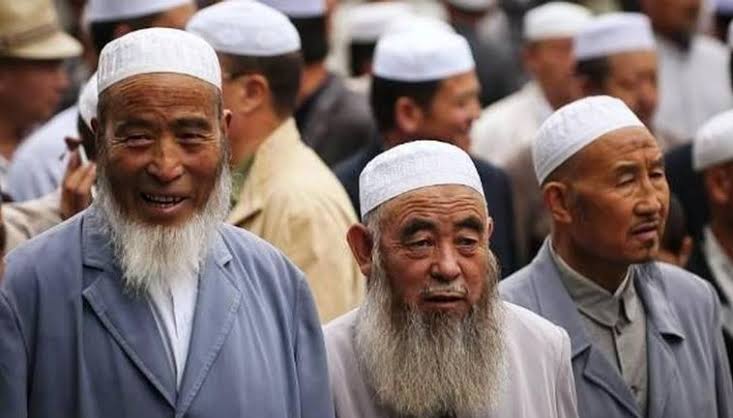China making all concerted efforts to support Uygur Muslims: Experts
ISLAMABAD: Speakers from various countries have unanimously hailed the Chinese government’s role in development of its ethnic minority groups especially the way China has supported and protected the development of its ethnic minority groups while Muslims in Xinjiang Province.
Participants from several countries including China, Russia, Pakistan and Egypt talked about China’s policies on its ethnic minority groups and agreed that the Uygur Muslims are enjoying full religious and ethnic rights and their right to worship and religion is fully protected under the law.
Addressing a virtual conference held on the sidelines of the 46th Session of the UN Human Rights Council, the executive vice president of China Family Planning Association, Yao Ying, said that the Chinese government has made every effort to promote the development of ethnic minority groups and improve their health and living standards.
“Xinjiang has set a successful example. From 2010 to 2018, the Uygur population in Xinjiang rose from over 10 million to more than 12 million, seeing an increase of over 25 per cent,” she said.
She added that the development is an external theme of human society and only through development, can the fundamental rights of people be guaranteed.
“China is always committed to the people-centered philosophy of development. Respecting the people’s principled position in the country ensures peoples’ equal rights. Chinese President Xi Jinping has emphasised that no one should be left behind,” she said.
Ying said that the Chinese government has especially formulated a program for developing the ethnic minorities’ areas. She said that in the 13th Five-Year Plan, the strategic importance of ethnic minorities and ethnic regions has been highlighted.
“China has 55 ethnic minorities groups and 155 autonomous ethnic minority areas. China’s government has made every effort to promote and improve the health and living standards of ethnic minorities,” she said.
Ying said that Xinjiang is a good example where birth rate of Uygur population in not only higher than Xinjiang’s total population, but it also is higher than all ethnic minorities groups in across China.
Muhatiremu Xiripu, the deputy secretary general of Islamic Association in Xinjiang Uygur Autonomous Region, said that in Xinjiang, normal religious activities are guaranteed.
“There are 103 Islamic Associations in Xinjiang and each mosque manages its own religious activities. The property of the mosque is protected by law. The access of Muslim people to religious knowledge is unobstructed,” he said.
Xiripu said that China firmly upholds the concept of people-centered development, respects the people’s principal position in the country, ensures their equal participation and right to development.
“Setting the improvement of people’s well-being and steady progress towards common prosperity as the aim and outcome of development, China makes its people the main participants, promoters and beneficiaries of development, enables its people to enjoy better education, more stable jobs, more satisfying income, more reliable social security, better quality healthcare services, more comfortable living conditions and a more beautiful environment, so as to promote the development of its people in all aspects,” he said.
He added that China’s development philosophy has contributed to the enrichment and improvement of the concept of the right to development.
He further said that the right to development is the right of individuals, peoples and nations to participate actively, freely and meaningfully in political, economic, social and cultural development and to enjoy equitably the benefits resulting therefrom.
“The Chinese government has made every effort to accelerate the development of ethnic minority regions and improve the health and living standards of ethnic minority people. Xinjiang is a successful example of such efforts. Xinjiang is the largest provincial administrative region with the longest land border and the largest number of bordering countries in China, accounting for about 1/6 of China’s total land area,” Xiripu said.
Hong Ping, the commissioner of China Family Planning Association, said that there are 55 ethnic minorities in China, and Xinjiang is the home to people of 47 ethnic minorities.
“Since the 18th National Congress of the Communist Party of China, Xinjiang has achieved unprecedented outcomes in economic and social development and livelihood improvement, and attained remarkable results in healthcare, poverty alleviation, infrastructure construction, environmental protection and drinking water safety,” she said.
She said that Chinese civil society has played an active role in promoting the development of China’s ethnic minorities, and relevant international organisations and foreign friends have also contributed important efforts.
She said that in order to facilitate the international community to better understand the latest development in Xinjiang and to discuss topics of shared interest, the China Family Planning Association and the China Population and Development Research Centre had jointly organise the virtual workshop on the theme of “Development of Ethnic Minorities and Protection of Human Rights in China”.
Chinese envoy Zhao Shiren urges students to uphold integrity and strengthen China-Pakistan ties
LAHORE:The Consul Generals from several countries and other distinguished guests attended …











